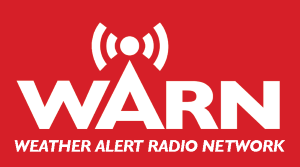
The organization that wants to build a coastal weather network of LPFM stations is still hoping to convince the FCC to allow it.
The Weather Alert Radio Network says there is plenty of spectrum available — and plenty of need.
Florida-based WARN had filed 213 applications during the recent LPFM window for construction permits at 105 sites in nine southern and southeastern states plus the Virgin Islands. It proposed a “public safety radio service” consisting of a rural FM broadcast network, focused on early warning and extreme weather preparedness.
The FCC dismissed those applications earlier this year, saying WARN did not meet eligibility requirements to hold an LPFM license. “[I]t is not community-based with respect to its proposed LPFM stations.” In addition, the FCC said WARN “did not submit requests for waivers of the requirement with the applications.”
WARN has now filed a petition asking to have its applications reinstated. It wants to add the necessary waiver requests and hopes the commission will evaluate its proposal on its public safety merits.
“Prior to the LPFM filing window, WARN sought clarification from the Audio Division staff concerning their interpretation of the eligibility rules, and it was never suggested that a waiver of the commission’s rules would be required,” it wrote. “Instead, they offered what insight was possible about WARN’s proposal and how it could fit the existing eligibility requirements.”
The organization acknowledged that it is not the role of FCC staff to provide advice.
WARN founder Rob Connelly told Radio World in an email, “Our waivers are based on the idea that the public interest would be better served if the rule sections had some reasonable latitude.”
The FCC generally prohibits an entity from holding an interest in more than one LPFM station, but WARN is hoping to take advantage of an exception that allows for not-for-profits and governmental entities with a public safety purpose to be granted multiple licensees if one application is submitted as a priority application and the rest do not face a mutually exclusive challenge.
According to Connelly, the FCC “says a non-profit entity must have jurisdiction. We are asking the commission to waive that stringent interpretation to include uses for the spectrum no one applied for and no one wants, to include non-profits with a public safety purpose — for this request.”
WARN wrote in its filing that it is “seeking some latitude from the commission, or the strict adherence to this narrow requirement will unnecessarily bar WARN from providing an invaluable public safety radio service.” It also wrote that “Audio Division staff have suggested that a non-profit could perhaps obtain a contract with someone who has jurisdiction, or alternately, be authorized by an agency with jurisdiction.”
According to WARN, people are still often not prepared for hurricanes and extreme weather. It said EAS and cell phone warnings are used mostly when danger is imminent, not when there is enough time for evacuation and preparedness.
WARN believes its system would help underserved coastal, rural communities and provide public safety agencies with a “direct to the public” connection it can activate without desensitizing the public to EAS.
It reiterated that its applications are all singleton proposals and thus they do not conflict with other applications. And there is plenty of LPFM spectrum available to implement the plan, it argued.
“In some communities, WARN found more than 15 available channels that were fully spaced and asserts this spectrum is spectrum no one else wants, and if dismissed, would deny this service to hundreds of thousands, if not millions of people in vulnerable coastal communities.”









